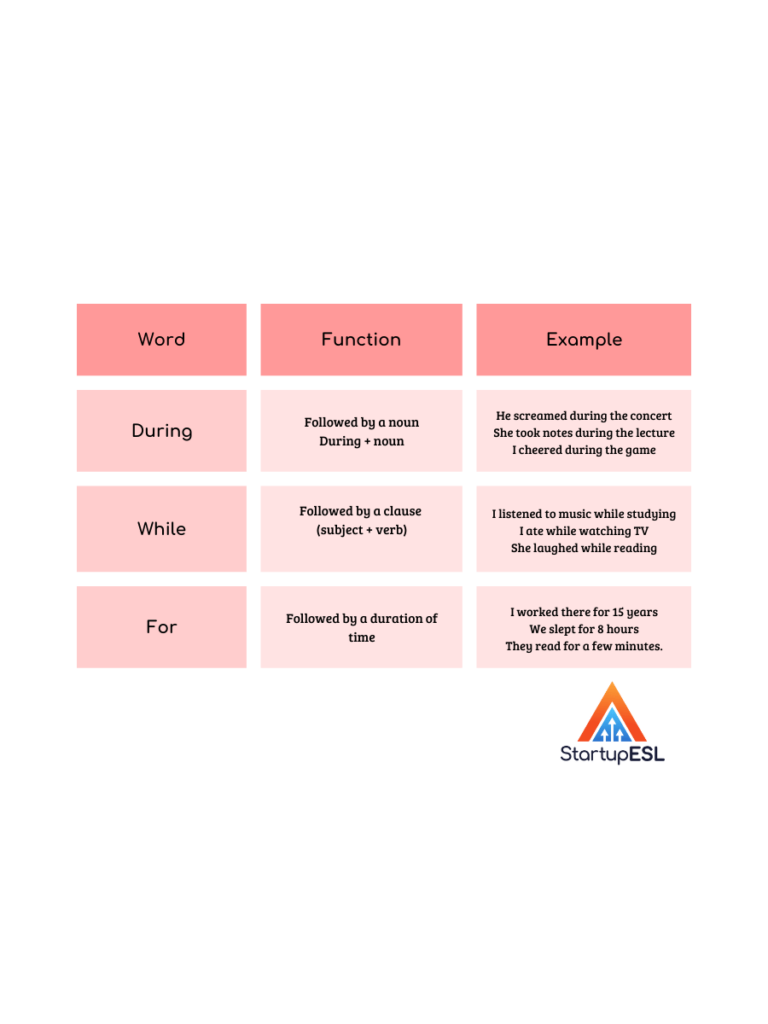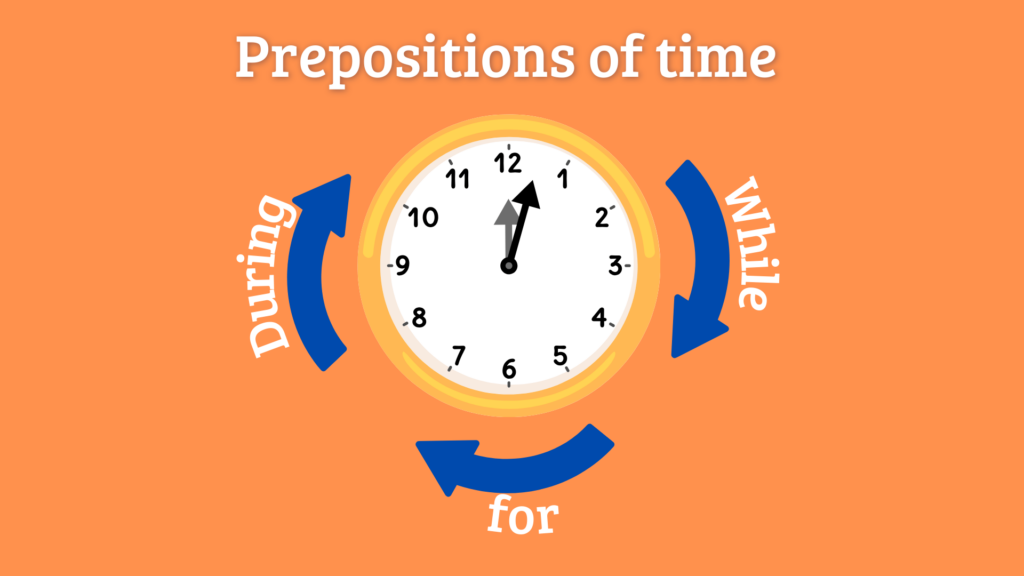So, If you are struggling with ‘during,’ ‘while,’ and ‘for,’ this blog will help you learn their differences, see common mistakes, and discover easy examples to master these time expressions in English!
‘During’: Used with a noun
Whenever you want to say something happened during some specific event, you’ll use ‘during.’ Imagine you’re listening to a particularly dull lecture and end up falling asleep. On the day of the exam, you can’t seem to recall the specific information for a question. Why? Well, it’s because you were sleeping ‘during’ that lecture.
Definition: ‘During’ is followed by a noun and is used to say when something happens.
Structure: During + Noun
Example: I fell asleep during the movie.
❌ Incorrect: I fell asleep while the movie.
✅ Correct: I fell asleep during the movie.
❌ Incorrect: Someone’s phone rang while the play.
✅ Correct: Someone’s phone rang during the play.
Quick Tip:
‘While’: Used with a Clause (Subject + Verb)
While I was writing this post, I was listening to music. ‘While’ is used when you want to describe parallel events (events happening at the same time). It’s a very important word frequently used in the past continuous tense. Unlike during, while requires a clause to and not just a noun.
Definition: ‘While’ is followed by a clause (a subject + a verb). It means that two actions happen at the same time.
Structure: While + Subject + Verb
❌ Incorrect: I was cooking dinner during my brother was setting the table.
✅ Correct: I was cooking dinner while my brother was setting the table.
❌ Incorrect: They will clean the kitchen during I clean the bathroom.
✅ Correct: They will clean the kitchen while I clean the bathroom.
Quick Tip:
‘For’: Used with a Period of Time
I’ve been teaching English for 10 years. You see, after that, there is a period of time (10 years). ‘For’ used in the context of time will represent the duration of something or how long. English learners sometimes use for + specific time (e.g., for 2 o’clock, for 2008), which is incorrect. If you frequently make this mistake, read the post about the difference between for and since, and take the quiz.
Definition: ‘For’ is used to talk about the length of time something lasts.
Structure: For + Duration (e.g., 2 hours, 3 days, a long time)
Example: I stayed in London for two weeks.
❌ Incorrect: I stayed in London during two weeks.
✅ Correct: I stayed in London for two weeks.
❌ Incorrect: I’ve been playing PlayStation during 10 hours.
✅ Correct: I’ve been playing PlayStation for 10 hours.
Quick Tip:
Table

Summary
Congratulations! You are one step closer to mastering English and speaking like a native. Keep up the good work. If you want to improve your English and see how much you have understood, take the short quiz below. Good luck!




